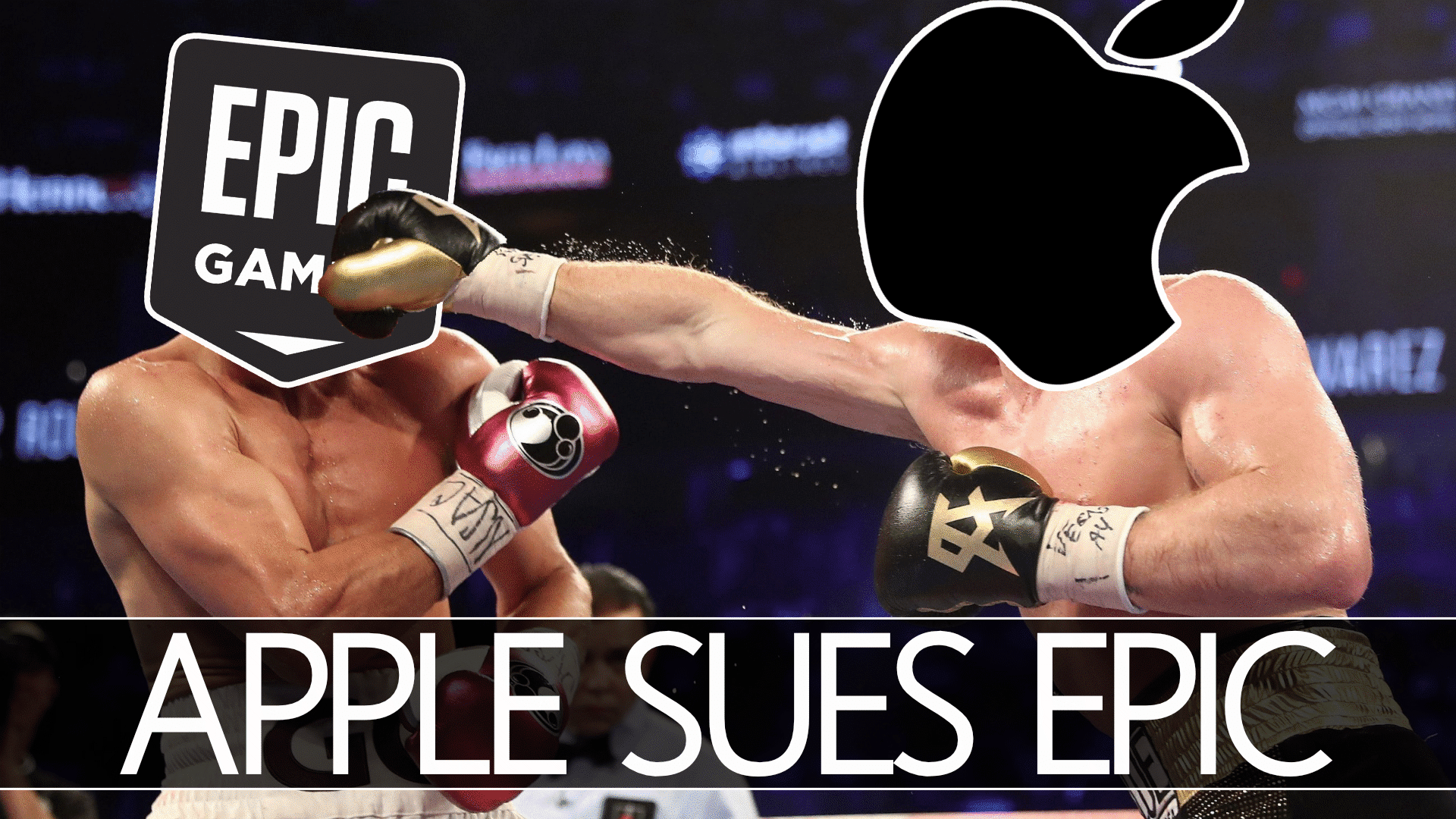

"Today's ruling isn't a win for developers or for consumers," Sweeney tweeted. Epic Games will appeal the decision, a spokeswoman told CNBC.Įpic Games CEO Tim Sweeney criticized the ruling in a statement on Twitter. "We are very pleased with the court's ruling and we consider this a huge win for Apple," Apple general counsel Kate Adams said.Īpple did not say if it would appeal the injunction.
#Epic games settlement trial#
People familiar with the trial previously told CNBC that both sides expected the decision to be appealed regardless of what it was. The trial took place in Oakland, California, in May, and included both company CEOs testifying in open court. "Given the trial record, the Court cannot ultimately conclude that Apple is a monopolist under either federal or state antitrust laws," Rogers wrote. However, Rogers said Apple was not a monopolist and "success is not illegal." "When coupled with Apple's incipient antitrust violations, these anti-steering provisions are anticompetitive and a nationwide remedy to eliminate those provisions is warranted." "The Court concludes that Apple's anti-steering provisions hide critical information from consumers and illegally stifle consumer choice," Rogers wrote. The injunction will come into effect in December. Apple won on nine of 10 counts but was found to engage in anticompetitive conduct under California law, and will be forced to change its App Store policies and loosen its grip over in-app purchases. The decision concludes the first part of the battle between the two companies over Apple's App Store policies and whether they stifle competition.

GameSpot might get a commission from retail deals.The injunction addresses a longstanding developer complaint and raises the possibility that developers could direct their users to their website to subscribe to or purchase digital content, hurting Apple's App Store sales, which grossed an estimated $64 billion in 2020.Īpple stock dropped more than 3% in trading Friday. The overall of those damages, while not shown GameSpot, will be contributed to Child’s Play, a charity which is committed to enhancing the lives of kids and teenagers in kids’s medical facilities all over the world. I will not do this ever once again.”Īs part of the settlement, Despotakis should likewise pay damages to Epic in a quantity accepted by both celebrations. What I did was unlawful and provided gamers an unreasonable benefit over other individuals who play by the guidelines. ” I want to say sorry to the Fortnite neighborhood. In it, he explicitly told would-be buyers to not ask him about Fortnite cheats or player accounts anymore. We take the illegal sale of these items seriously and we’ll pursue all available options to make sure our games remain fun, fair and never pay-to-win.”ĭespotakis released his own statement on Twitter on May 9, one week after the settlement was reached, according to the Consent Order.

Selling or purchasing accounts in Fortnite is a breach of the video game’s terms even when cheats aren’t included.Įpic used a declaration on the topic as a whole: “Selling compromised player accounts and cheat technologies puts people’s information at risk and ruins the experience for people who are playing fairly. It can be assumed that those who purchased BlazeFN accounts will likewise go through charges in-game, at the minimum– though it’s not understood whether Epic is pursuing those purchasers particularly. It’s uncertain the number of cheats and accounts were in fact offered or whether other comparable legal procedures are underway, following the judgment in favor of Epic and versus the unlawful BlazeFN store. Artwork for BlazeFN’s different store products were made to look like Fortnite’s Item Shop. Listings for the unlawful BlazeFN store products consist of aimbots, limited-time “Full Access V-Bucks accounts” and “inactive” accounts that consisted of unusual or popular skins and pre-completed fight passes, to name a few unlawful offerings. The judgment comes a year after the procedures started in April 2021.
#Epic games settlement license#
Epic Games took a Fortnite cheater to court in Australia, with completion outcome being the cheater saying sorry openly, shutting down his organization of offering cheated and jeopardized accounts, and paying Epic for damages, which the business will contribute to charity.Īccording to files gotten by GameSpot, the Federal Court of Australia figured out Brandon Despotakis– much better understood online as BlazeFN- breached the Fortnite end user license arrangement (EULA) and regards to service, infringed on Epic’s copyright, and unlawfully offered in-game accounts and cheats to other gamers.


 0 kommentar(er)
0 kommentar(er)
